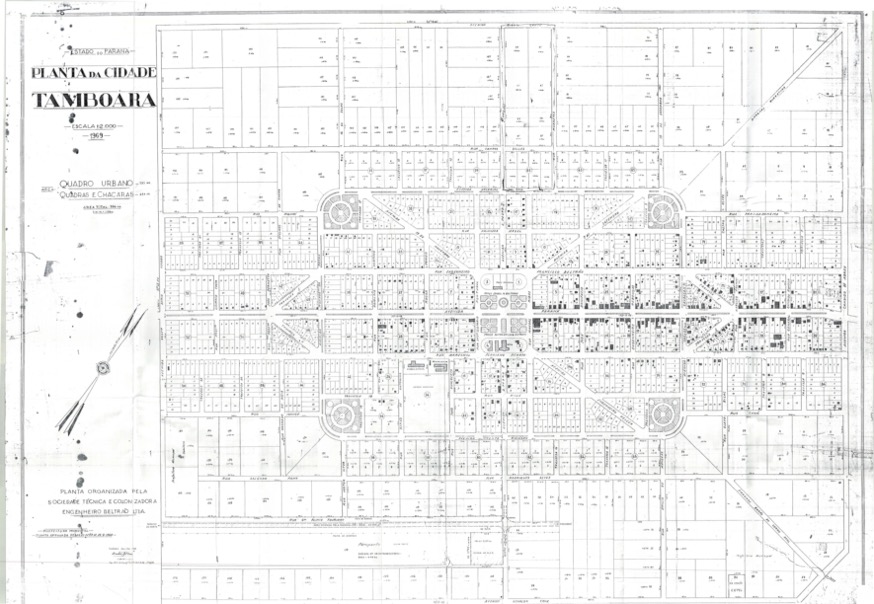Global Ideas and Cultural Responsiveness: Why New Towns in Israel and Brazil Are Not the Same
Renato Leão Rego

Image: Layout of Tamboara (1947), partially modified in 1969. Source: Prefeitura Municipal de Tamboora.
Abstract
This paper explores how local culture may curb the homogenizing forces of globalization in the diffusion of planning ideas. Given that the built environment is constructed both physically and culturally, this paper draws a comparative case study of territorial planning and the creation of new towns in Israel and Brazil in the mid-twentieth century. The private colonization scheme in northern Paraná state, in Brazil, and the Physical Planning in Israel were both based on widely influential ideas collected in the Greater London Plan 1944. Although the resulting regional strategies were similar, their urban forms differed largely due to their unique modes of being-in-the-world. While the Israeli new towns acclimatized the physical aspects of garden cities for ideological reasons, the Brazilian new cities stuck to a more practical gridiron layout. As a conclusion, this study illustrates how culturally sensitive projects gave local form to ideas and models that had been diffused through global interconnectivity.
Rego, R. L. “Global Ideas and Cultural Responsiveness: Why New Towns in Israel and Brazil Are Not the Same.” Planning Perspectives, 2021. https://doi.org/10.1080/02665433.2021.1873172



